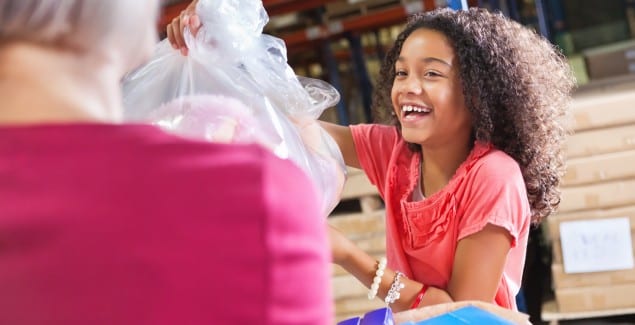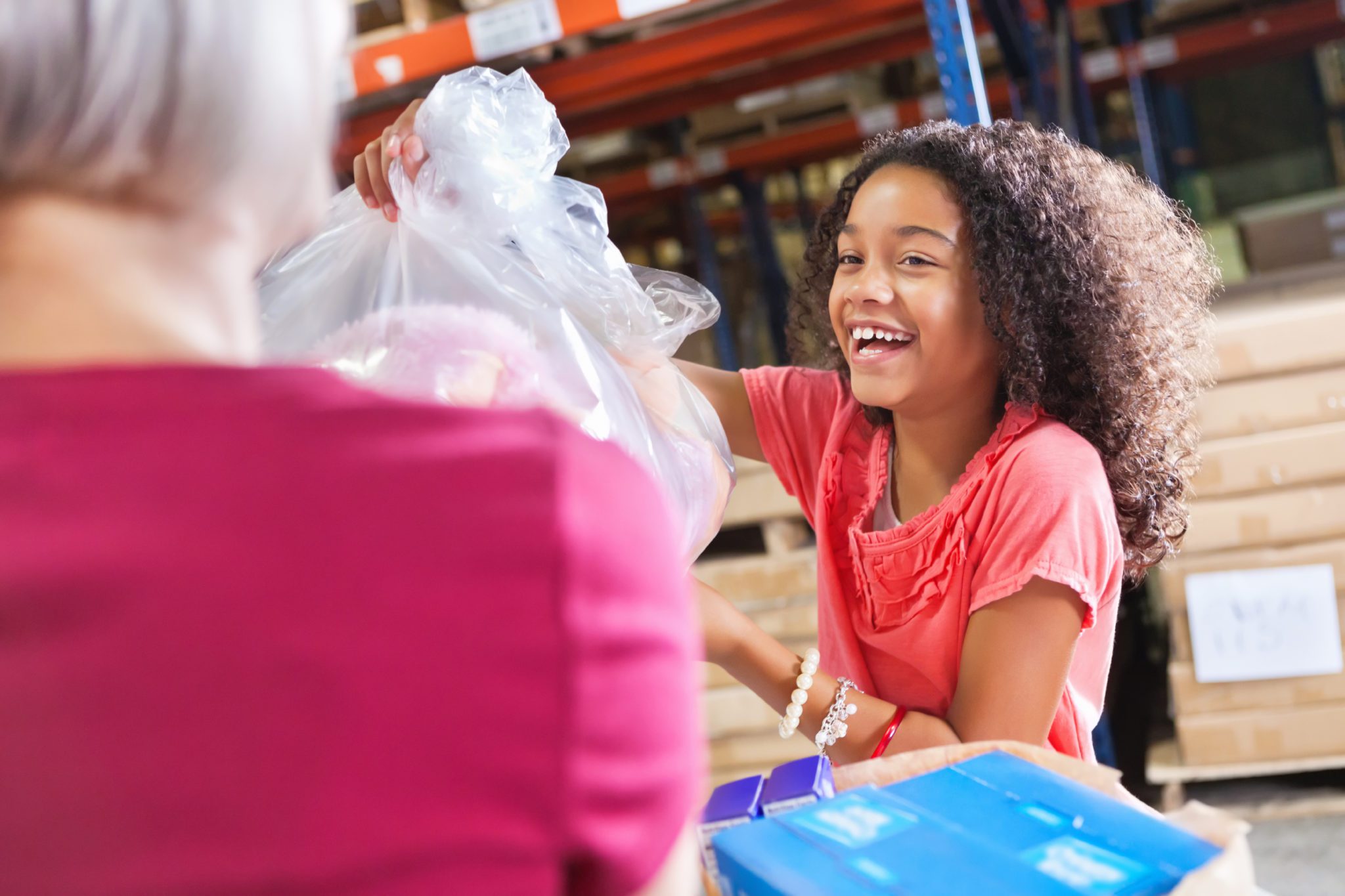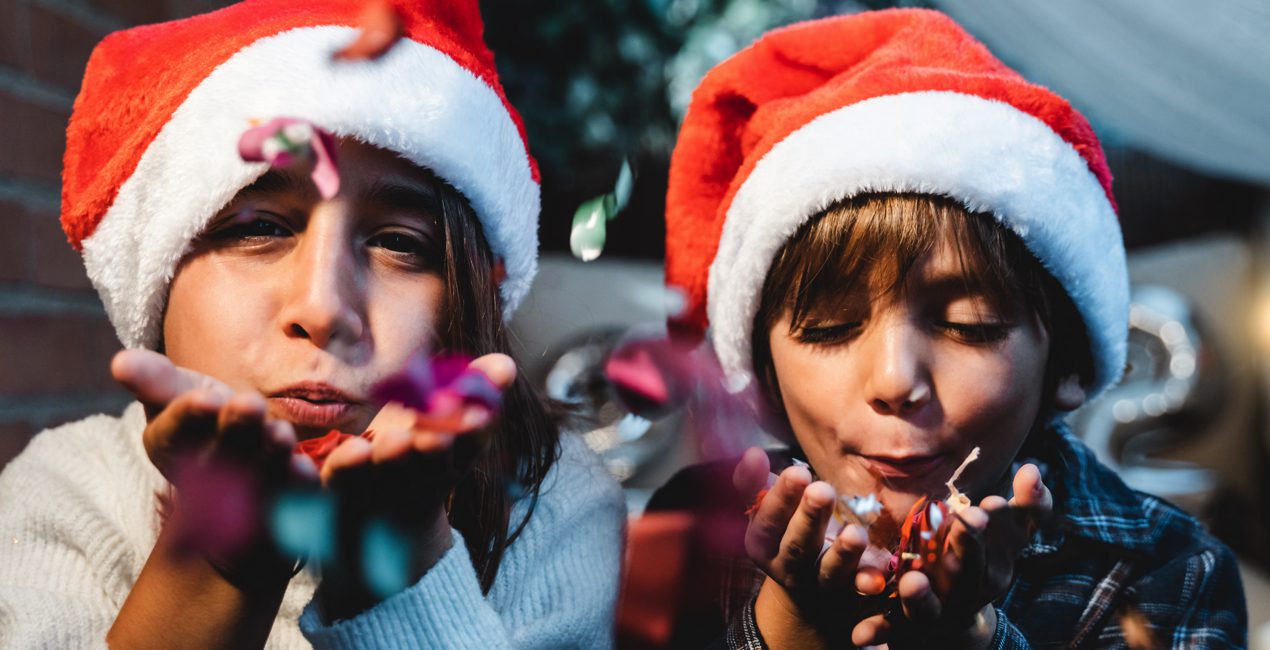Raising A Grateful Child In the Season of Getting

Posted in: Hot Topics
Topics: Healthy Living, Relationships
Ah, it’s the holidays: a time for giving, but also a time for getting. If you’re a parent, you might be wondering if all this “stuff” you’ve been buying is making your child happier—or greedier. At the very least, you’d probably like your child to be happy with what he’s getting.
Psychological research studies have shown that gratitude is strongly and consistently correlated with greater happiness. In other words, people who live a life grateful for what they’ve been given report higher levels of happiness and life satisfaction than those who don’t—and this has little or no relationship with what those people actually have. Whether rich or poor, if you are more thankful, you’re likely more happy. In contrast, other studies have shown that children who grow up receiving a never-ending stream of possessions tend to be less grateful for what they have than children who are given less. At this time of year, these two issues present parents with a dilemma: more stuff isn’t going to make their children happier (in fact, it might actually make them LESS happy), but their kids, on the other hand, expect more stuff.
Parents actually have more control over this issue than they might think, as they can help their children cultivate gratefulness during this time of year—and throughout. Some ways parents can cultivate gratefulness at this time of year include:
- Helping your children make wise choices. Analyze whether your children want something because all of their friends have it, because it’s been heavily advertised—OR because they really do, in fact, want or need it.
- Making your children more excited about the giving process by encouraging them to buy thoughtful gifts for others—preferably with their own money. At the very least, take them shopping for other people’s gifts, and get them thinking about what type of gift would make their loved ones happy—and and grateful—for receiving it.
- Setting limits on spending—and sticking to them. Let your children know the amount so they know what to expect.
- Thinking about incorporating traditions or rituals that involve doing things together. Pick presents that help kids learn a new skill, or that involve doing things with other people.
Moreover, research has shown that gratitude is something that develops over time; therefore, it needs to be cultivated throughout the year by:
- Modeling gratitude for your kids by commenting frequently on blessings in your own life. Even simple things like, “Look at that sunset, “ or “It was so wonderful for your Aunt Tina to stop by say ‘hello,’” help kids focus on the positive—which is the first step in becoming more grateful.
- Being a good role model for kind behavior.
- Creating a mealtime ritual where family members name something that went well that day.
- Encouraging your children to engage in acts of loving kindness by donating toys or volunteering. Volunteering doesn’t need to be working at a homeless shelter; it can be as simple as paying a visit to the elderly person down the street. Even 3-year-olds can make a difference in a lonely person’s day.
- Sending thank you notes, and acknowledging gifts in an age-appropriate way.
- Not treating your children as if they are the center of the universe; instead, helping them to understand their place in the world.
- For adolescents, one of the best ways to develop a sense of what things cost is to work for pay. It teaches them better than anything the connection between work and acquiring goods.
Gratitude is a tricky concept to teach—and to learn. We’re all by nature somewhat self-centered, and that’s especially true for young children. But, by teaching your kids the art of gratefulness, you’re not just increasing the chances that they’ll live a happier life, you’re also helping them develop empathy and other important life skills. Above all, be patient; if your child isn’t grateful all the time, that’s OK. Learning to have a grateful heart is a lifelong process. And, it’s an important one that may be a key ingredient in our own happiness and well-being.

 Share
Share Tweet
Tweet





